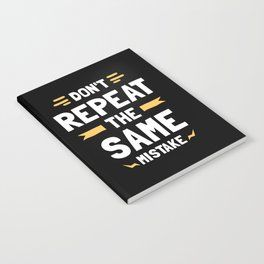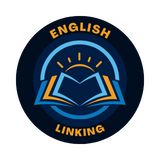Have you ever noticed how often people end messages with “I look forward to working with you”?
It’s polite, professional, and safe, but also one of the most overused lines in emails, cover letters, and workplace communication
The way you express enthusiasm can shape how others perceive you. That’s why exploring other ways to say “I look forward to working with you” helps you sound authentic, confident, and more memorable.

In this article, we’ll explore when it works best, when it doesn’t, and smart alternatives you can use to stand out while still sounding respectful.
Why “I Look Forward to Working With You” Matters

A Polite Way to End Communication
The phrase “I look forward to working with you” has become a go-to closing line because it conveys both respect and enthusiasm.
For job seekers, it adds a professional touch to cover letters or follow-up emails, reassuring employers that you are genuinely interested in the opportunity.
Corporate employees often use it when kicking off a project, showing colleagues they are eager to collaborate.
For students and early-career individuals, it can be a safe way to address professors, supervisors, or internship coordinators without sounding too casual.
Consider how these examples sound:
- “Thank you for your time. I look forward to working with you on this project.”
- “It was great speaking with you today. I look forward to working with you and applying my skills to support your team.”
Both phrases set a professional and positive tone, leaving the recipient with confidence in your commitment.
The Risk of Sounding Too Generic

However, because “I look forward to working with you” is so widely used, it can sometimes lose its impact.
When every job applicant, student, or employee uses the same phrase, it risks sounding like a template response rather than a genuine expression of interest.
Employers and colleagues may overlook the message or feel it lacks personality.For instance, imagine an inbox filled with applications that all end the same way.
The repetition makes it harder for any one candidate to stand out.
By slightly tailoring your closing line, you can show sincerity while still maintaining professionalism, a balance that can set you apart in competitive environments.
When to Use It (and When to Avoid It)
Best Situations to Use the Phrase
The phrase “I look forward to working with you” shines in formal and professional settings where courtesy and enthusiasm matter.
- Job applications and cover letters: Employers appreciate a polite close that reinforces your interest.
- Example: Thank you for considering my application. I look forward to working with you and contributing to your team’s success.
- Networking follow-ups: After meeting a recruiter, mentor, or industry contact, this phrase helps maintain a professional connection.
- Example: It was great connecting with you at the event. I look forward to working with you and learning more about your field.
- Internal team communication: Employees and students on group projects can use it to show commitment and collaboration.
- Example: Thank you for assigning me this role. I look forward to working with you to complete the project successfully.
When It Can Backfire
Despite its usefulness, “I look forward to working with you” doesn’t fit every situation.

- Casual emails: In friendly conversations with peers, the phrase may feel stiff or overly formal.
- Overuse in every message: Repeating the same closing in multiple emails can make your communication predictable and less impactful.
- When more sincerity is needed: If you’re truly excited, a more personalized closing like “I’m excited to get started on this project with you” often feels warmer.
Knowing when to use and when to avoid the phrase ensures your messages stay both professional and authentic.
Friendly and Professional Alternatives You Can Use

While “I look forward to working with you” is effective, adding variety to your communication makes you sound more authentic. Below are polished alternatives you can adapt depending on whether you’re in a formal or casual setting.
Professional Alternatives (Formal Settings)
These are ideal for job seekers, corporate employees, and students writing to recruiters, managers, or professors.
- “I’m eager to contribute to this opportunity.”
Example: Thank you for the interview today. I’m eager to contribute to this opportunity and add value to your team. - “I look forward to collaborating with your team.”
Example: I appreciate the warm welcome. I look forward to collaborating with your team on the upcoming campaign. - “I’m excited about the possibility of working together.”
Example: It was great speaking with you. I’m excited about the possibility of working together and supporting your department’s goals.
Friendly Alternatives (Everyday Communication)
These are perfect for peer-to-peer emails, group projects, or casual workplace settings.
- “Can’t wait to get started!”
Example: Thanks for sharing the project outline. Can’t wait to get started with the team! - “I’m excited to team up on this.”
Example: This topic looks really interesting. I’m excited to team up on this presentation. - “Looking forward to making this a success together.”
Example: Great ideas in today’s meeting! Looking forward to making this a success together.
These alternatives help you maintain professionalism while avoiding the repetition of always ending with “I look forward to working with you.”
How to Choose the Right Version for Your Situation

Match the Tone of the Conversation
One of the most important rules in professional communication is matching the tone of the person you are writing to. If you are emailing a recruiter, manager, or professor, it’s safer to keep your message formal.
In these cases, phrases like “I look forward to working with you” or “I’m eager to contribute to this opportunity” show respect and professionalism.
On the other hand, if you are writing to a classmate, teammate, or a colleague you already know well, being overly formal may feel unnatural.
A lighter tone works better, such as I’m excited to team up on this or Looking forward to making this a success together. Adjusting your phrasing makes your message more relatable while still professional.
Keep It Authentic
Regardless of whether you choose formal or casual wording, authenticity matters. Don’t copy-paste the same line into every email. Instead, pick the version that genuinely reflects your excitement or intention.
For example, if you’re truly enthusiastic about a new role, saying “I’m excited about the possibility of working together” feels more genuine than a plain “I look forward to working with you.”
Students and early-career professionals can improve this skill by practicing rephrasing in mock emails. Try drafting one version for a recruiter and another for a classmate.
This exercise builds flexibility and helps you avoid sounding robotic. In the end, the goal is to make your emails feel both professional and personal, ensuring the recipient feels your sincerity.
Common Mistakes to Avoid

Overloading Emails with Clichés
While “I look forward to working with you” is professional and polite, pairing it with too many other formalities can make your email sound overly rehearsed.
Phrases like “With the utmost sincerity”, “Kindest regards”, or “Please accept my humble appreciation” can come across as outdated and insincere when stacked together.
For job seekers and students, this often happens when trying too hard to sound professional. Instead of impressing the reader, the message may feel stiff and lack personality.
A better approach is to keep your closing concise and genuine.
For example: “Thank you for your time today. I look forward to working with you on this project.”
This keeps the tone respectful while avoiding unnecessary fluff.
Forgetting a Call to Action
Another common mistake is ending with “I look forward to working with you” but failing to clarify the next step. Without direction, the recipient may be unsure how to respond or move forward.
For instance, ending a job application email with only the phrase leaves the hiring manager guessing. A stronger alternative would be:
“I look forward to working with you. Please let me know the next steps in the hiring process.”
Similarly, in student or team settings, you might say:
“I look forward to working with you. Could you confirm the deadline so we can plan accordingly?”
By pairing the phrase with a clear call to action, you show initiative and make your communication more effective.
Examples You Can Copy and Adapt
Job Application Example
When applying for a role, your closing line should feel professional yet enthusiastic. Below is a short sample email to HR that shows how to use “I look forward to working with you” and also how to rephrase it with an alternative.
Example 1 (with keyword):
Subject: Application for Marketing Assistant Role
“Dear [Hiring Manager’s Name],
Thank you for reviewing my application. I am confident my background in digital campaigns aligns with the requirements of this position. I look forward to working with you and contributing to your team’s success.
Best regards,
[Your Name]”
Example 2 (alternative phrasing):
“Dear [Hiring Manager’s Name],
It was a pleasure speaking with you during the interview. I’m excited about the possibility of working together and supporting your company’s marketing initiatives.
Sincerely,
[Your Name]”
Student/Workplace Example
Students and employees often need to email professors, supervisors, or team members. In these cases, you can keep the wording polite but slightly more relaxed.
Example 1 (with keyword):
“Hi Professor Smith,
Thank you for clarifying the project requirements. I look forward to working with you and applying the feedback in my final paper.
Best,
[Your Name]”
Example 2 (casual team setting):
“Hey team,
Great brainstorming session today! I’m excited to team up on this project and bring our ideas to life. Looking forward to making this a success together.
Cheers,
[Your Name]”
These templates help job seekers, employees, and students maintain professionalism while avoiding repetitive closings.
Conclusion

Wrapping up, remember that “I look forward to working with you” is a powerful phrase but using it wisely, and knowing when to switch it up, can make your communication stand out.
Whether you’re a job seeker, student, or young professional, the right words show confidence and professionalism. Now it’s your turn try one of these alternatives in your next email and notice the difference it makes.
If this post helped you, share it with a friend or colleague, drop a comment with your favorite alternative, and subscribe for more career communication tips.






